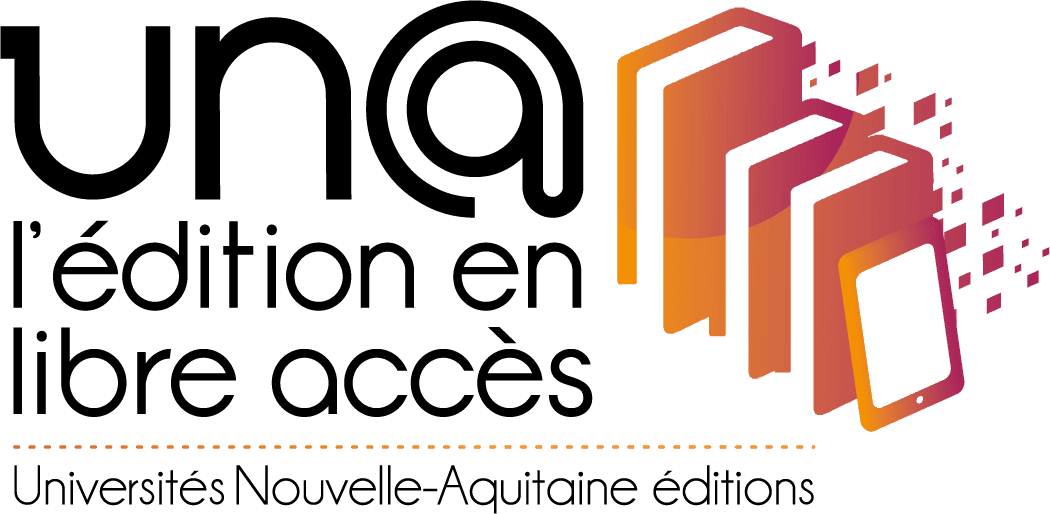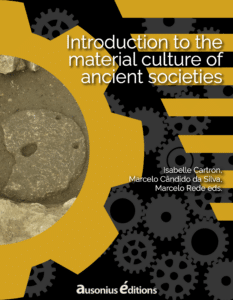UN@ est une plateforme d'édition de livres numériques pour les presses universitaires de Nouvelle-Aquitaine
Editeur : Ausonius Éditions

Fondé en 1995, Ausonius Éditions fut conçu à l’origine comme le service des publications de l’UMR Ausonius, laboratoire de recherches spécialisée dans les domaines de l’Antiquité, du Moyen Âge et de l’Archéologie. Progressivement, Ausonius Éditions s’est ouvert aux publications des chercheurs de toutes origines, au gré de multiples partenariats avec des équipes de recherches françaises et étrangères. Présentant aujourd’hui un catalogue de près de 300 titres, regroupés dans une vingtaine de collections, parmi lesquels coexistent formats pratiques et “beaux livres”, il jouit d’une large reconnaissance et diffusion auprès de la communauté scientifique internationale ainsi qu’auprès d’un public plus vaste de lecteurs curieux du passé. Aujourd’hui, Ausonius Éditions a pris une orientation résolument numérique pour certains de ces ouvrages en les proposant enrichis et en libre accès.
We are used to see chronic food shortages as a characteristic feature of ancient societies.
par Mathieu Vivas
Penal death in medieval Europe is a vast subject whose chrono-cultural, institutional, and regional subtleties have been highlighted by historians of texts, images, law and procedure, subtleties which sometimes still raise questions.
par Isabelle Cartron
The organization of burial spaces evolved considerably throughout the Middle Ages. The progressive Christianization of towns and the countryside considerably modified the relationship between the dead and the living.
par Leandro Ranieri
Fighting and warfare narratives fulfil the annals of sovereigns in the world history. Sometimes these narratives are accompanied by images, celebrating the battle achievements.
Henry E. Eccles (1962, 98) described logistics as “the bridge between the economy of the nation and the tactical operations of the combat forces.” The limitations faced by ancient societies in waging war were related to their capacity to produce, muster and transport resources in a timely fashion.
Weapons are valuable to understand societies, as they not only respond to specific issues regarding fighting techniques, but also, they present a social aspect: all soldiers did not have the same equipment.
par Cécile Michel
Garments are a civilisation fact in ancient Mesopotamia. Made of linen, then wool, it is highly dependent on the development of agriculture and animal husbandry, born and developed from the 9th millennium on.
par Marcelo Rede
The presence of inscriptions frequently has the effect of eluding the materiality of the artifact. In many fields of knowledge, writing has thus earned a certain amount of autonomy about its physical support, and it became the focus of the analysis.
par Julie Renou
The analysis of an artefact and its contexts is the “reading” of the object, some archeologists even call it “making the remains speak”.
par Adrien Bayard
The structural weakness of States in the High Middle Ages explains the importance of social ties. This fact also justifies the central place of the notion of reciprocity, the real engine of social relations.
par Gabriel Cordeiro
La Confiserie is an archaeological site located about 20 kilometres from the north of Paris. It was part of a peasant settlement built in the early Carolingian period.
Food crises are a recurring phenomenon in the history of ancient societies, whether in their catastrophic form, famine, a shortage of food or purchasing power that leads directly to excess mortality from starvation or hunger-induced diseases;


